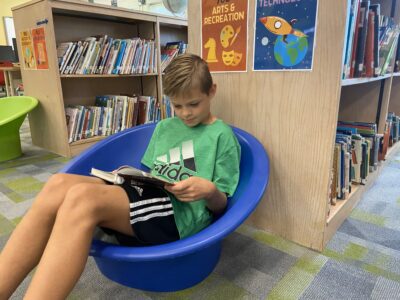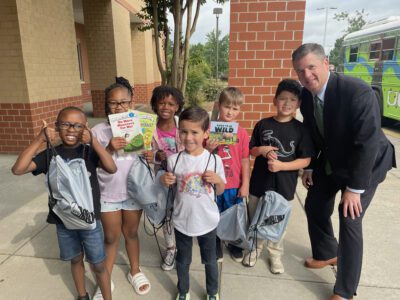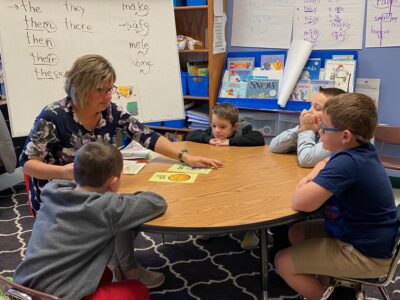

|
|
Recently, the NC Early Childhood Foundation released the first of the five-part Pathways to Grade-Level Reading Policy and Practice Action Toolkit to provide guidance for how policymakers, advocates, community non-profits, the business community, and other stakeholders can support the wellbeing of all NC children.
Eight years ago a broad tent of stakeholders from across North Carolina started meeting and developed NC’s Pathways to Grade-Level Reading (Pathways). Pathways stakeholders identified 44 Pathways Actions that provide evidence-based guidance for how policymakers, advocates, community non-profits, the business community, and other stakeholders can support the wellbeing of all NC children.
It is these actions that we now advance through this five-part Pathways to Grade Level Reading Policy & Practice Actions Toolkit. Each part of the toolkit will provide evidence-informed guidance and recommended practices and also highlight organizations and initiatives across the state that are already taking action to move the needle.
Take a closer look at each of the two- to three-page action briefs included in Part 1 of the toolkit. Each brief highlights an action that can strengthen our state’s early care and learning system in ways that are responsive to the state’s cultural diversity.
- ACTION: Support Families in Advocating for their Children. To strengthen families’ understanding of their own power, invest in family education about how to understand and navigate through child and family systems, and be a voice (advocate) for their own and their children’s needs at child care, in school and in health care settings. Read this action brief >>>
- ACTION: Require Linked Strategies Across Programs to Engage and Learn from Families. Families are a critical resource in planning and implementing services for children. Involving them as equal partners and leaders in decision making from the beginning is an equity strategy that can result in systems that are responsive to the immediate and emerging needs of children and families. Read this action brief >>>
- ACTION: Ensure Assessment Instruments are Culturally and Linguistically Relevant. Ensure that social-emotional health and educational assessment tools can work for and be understood by many cultures and by people who speak different languages–are culturally and linguistically relevant. When culturally and linguistically relevant screening tools and assessments are used with young children and families in educational and mental health settings, they are more likely to be assessed correctly, receive the services they need, and feel positive about their experiences. Read this action brief >>>
- ACTION: Provide Professional Development for Teachers on Cultural Competency/Working with Families. North Carolina’s history and increasingly diverse population calls for cultural competency training and professional development for child care, preschool, and K-3 caregivers and educators. Such training would strengthen their knowledge and skills for partnering with families, particularly families from overburdened and under-resourced communities. Read this action brief >>>
- ACTION: Ensure Education Accountability Systems are Culturally Relevant. Accountability systems in early care and education—such as how student, educator, child care and school performance are measured—are most effective when they are relevant to the cultures of children, families, staff, and communities involved. This can be achieved by engaging people from low-income communities and communities of color in the design, reporting, and fine-tuning of accountability measures. Read this action brief >>>
- ACTION: Support Schools and Child Care Programs to Engage Deeply with Families. Family engagement happens when educators and families participate in an interactive process of relationship-building that is mutual, respectful, and responsive to each family’s language and culture. School and child care programs can learn to create a welcoming environment, provide opportunities for families to form relationships with staff, engage in respectful, two-way communication with families, practice shared decision-making in planning services for children, and recognize and build family strengths and leadership. Read this action brief >>>
Visit the info page to learn more about the Pathways Action Map and consider adding your work! Share it with others in your network and community, whose work you think should be spotlighted. We want to utilize the Map as a resource to build awareness of innovation, make connections, and identify gaps and opportunities that can help guide policy making, advocacy, funding, and capacity building.
If you have any questions, or would like a guided tour of the Pathways Action Map, please contact us. We’d love to hear your ideas on how to continue to utilize this tool to support the success of all North Carolina children.





